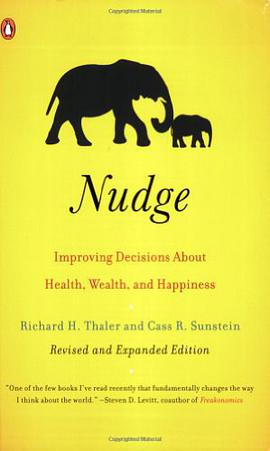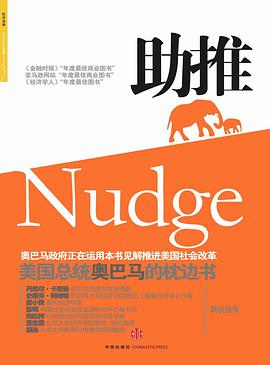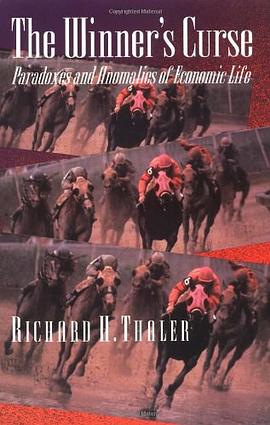Nudge 豆瓣 Goodreads
作者:
Richard H. Thaler
/
Cass R. Sunstein
Penguin Books
2009
- 2
在线阅读本书
Nudge is about choices—how we make them and how we can make better ones. Authors Richard H. Thaler and Cass R. Sunstein offer a new perspective on preventing the countless mistakes we make— including ill-advised personal investments, consumption of unhealthy foods, neglect of our natural resources, and other bad decisions. Citing decades of cutting-edge behavioral science research, they demonstrate that sensible “choice architecture”can successfully nudge people towards the best decisions without restricting their freedom of choice. S straightforward, informative, and entertaining, this is a must-read for anyone with interest in our individual and collective well-being.
Nudge is about choices—how we make them and how we can make better ones. Authors Richard H. Thaler and Cass R. Sunstein offer a new perspective on preventing the countless mistakes we make— including ill-advised personal investments, consumption of unhealthy foods, neglect of our natural resources, and other bad decisions. Citing decades of cutting-edge behavioral science research, they demonstrate that sensible “choice architecture”can successfully nudge people towards the best decisions without restricting their freedom of choice. S straightforward, informative, and entertaining, this is a must-read for anyone with interest in our individual and collective well-being.


